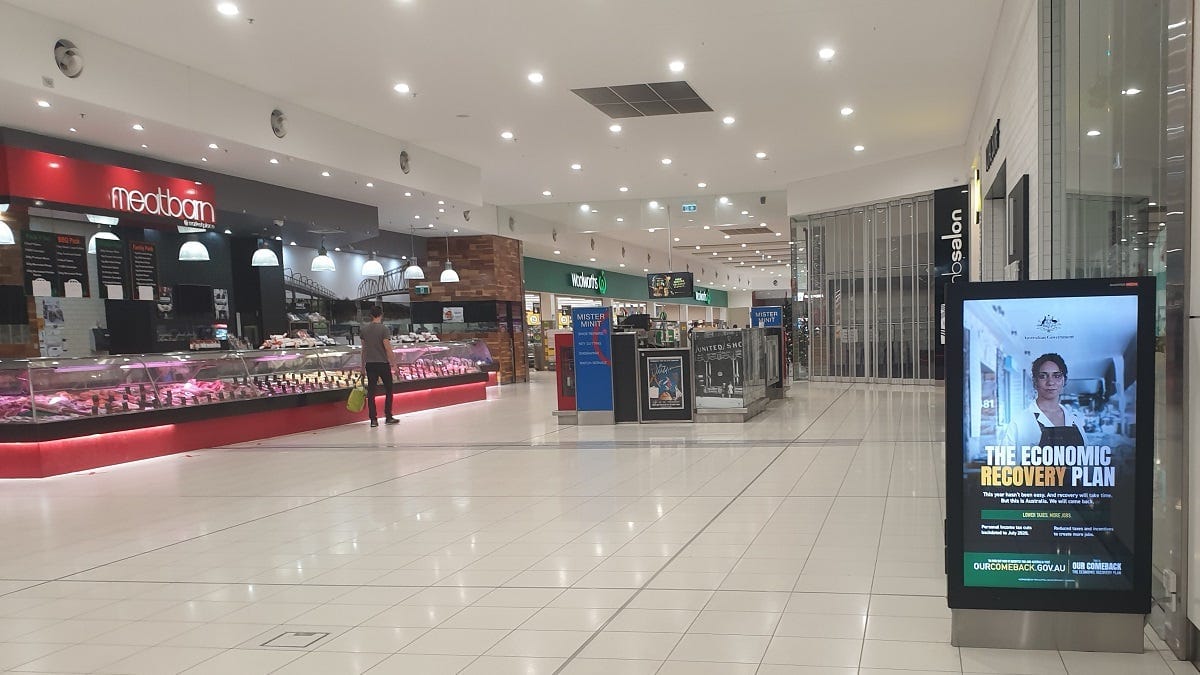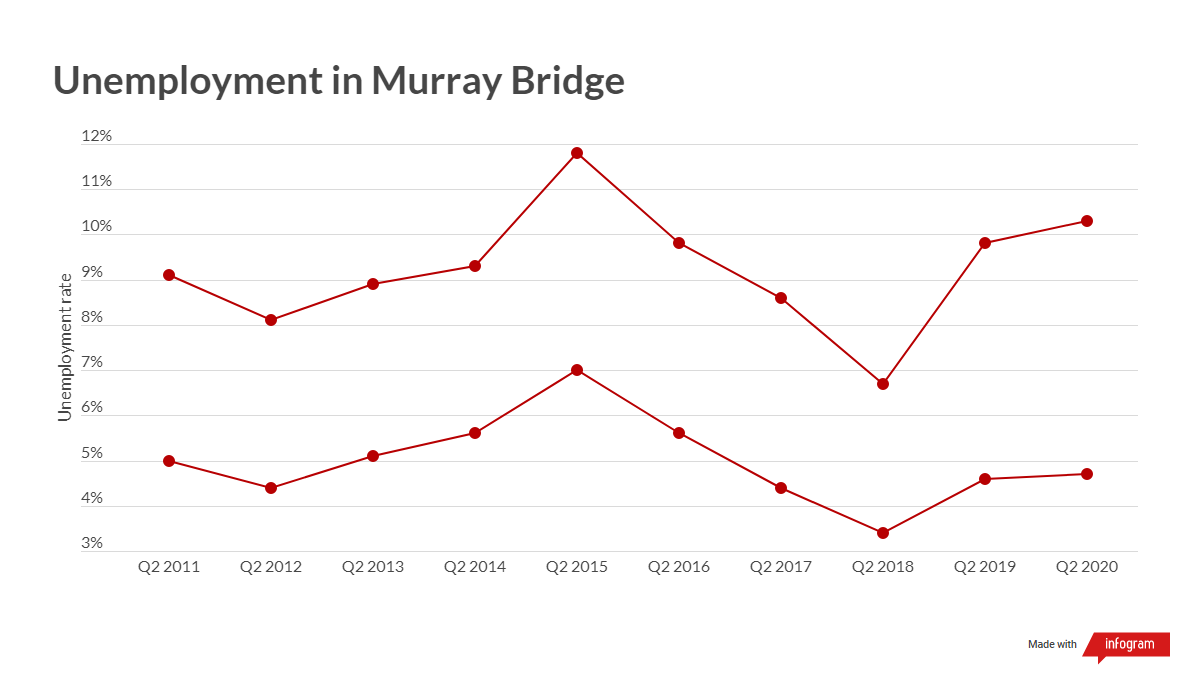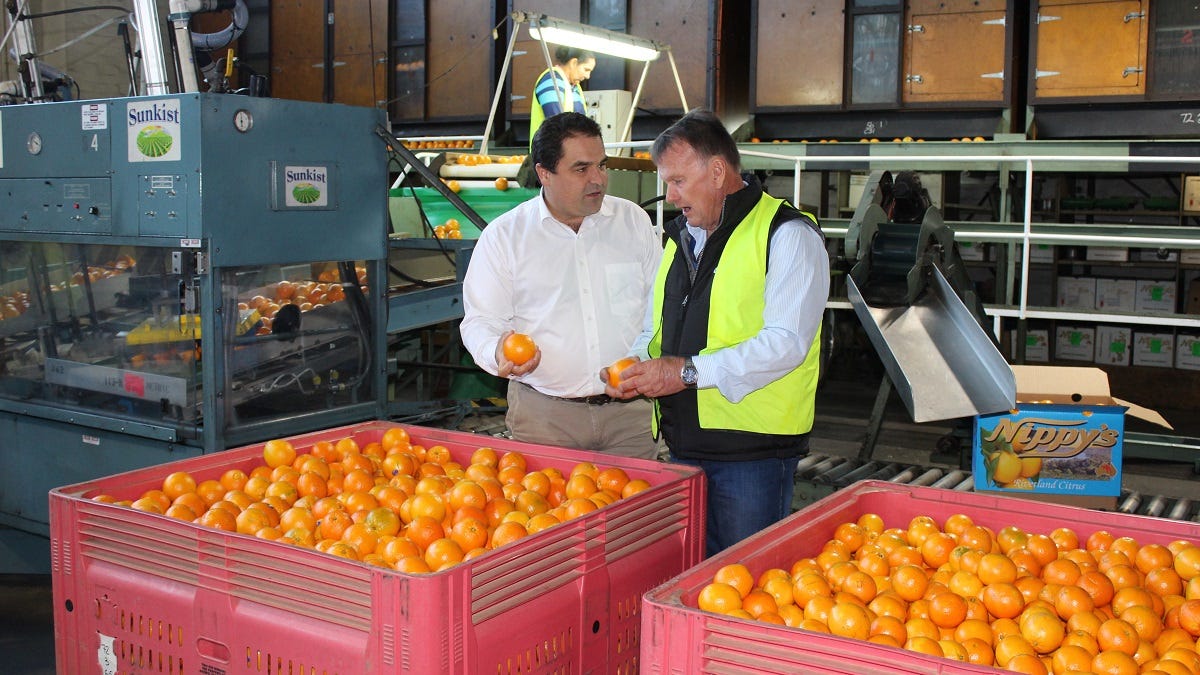Unemployment rate hits 10 per cent in Murray Bridge
But there are still jobs available in the food industry, says federal MP Tony Pasin.

The coronavirus pandemic has pushed unemployment in Murray Bridge to its highest level in five years.
The city’s unemployment rate was 10.3 per cent in the second quarter of this year, according to the National Skills Commission, a little higher than the state average.
Nine hundred and thirty people were estimated to be looking for work in Murray Bridge.
That’s 300 more than there were in 2018, even after the meat works burned down that year.
Another 100 or so residents of surrounding communities such as Mypolonga, Wellington and Monarto were also looking for work in the second quarter of 2020.
The federal Labour Market Information Portal warned that the unemployment estimates “only partly” reflected the effect of COVID-19 and changes to government payments.
The unemployment rate would be much higher if so many people had not simply given up looking for work in the first half of 2020.

Yet some jobs are still going begging
Despite the high unemployment rate, some employers still said they were unable to find enough workers as recently as last month.
More than 650 jobs were available just in the food processing industry, between Thomas Foods International, Costa Adelaide Mushrooms, Big River Pork and Madec, which acted as an agency for harvest workers.
Dozens more were available in aged care and engineering, according to federal MP Tony Pasin.
“A lot of the jobs I’m hearing about are full time, well paid, ongoing jobs with promising career paths in interesting industries," he said.
“While nationally the unemployment rate rose during the peak of the COVID pandemic, the assertion that there are no job opportunities is just plain wrong.”
Mr Pasin had previously argued that the Jobseeker payment available to unemployed Australians was too generous, and acted as an incentive for people not to seek work.
However, the federal government has also been criticised – by opposition MPs, anti-poverty campaigners and Jobseeker recipients – for its plan to reduce the rate to its pre-pandemic level of $40 a day after March 31.






